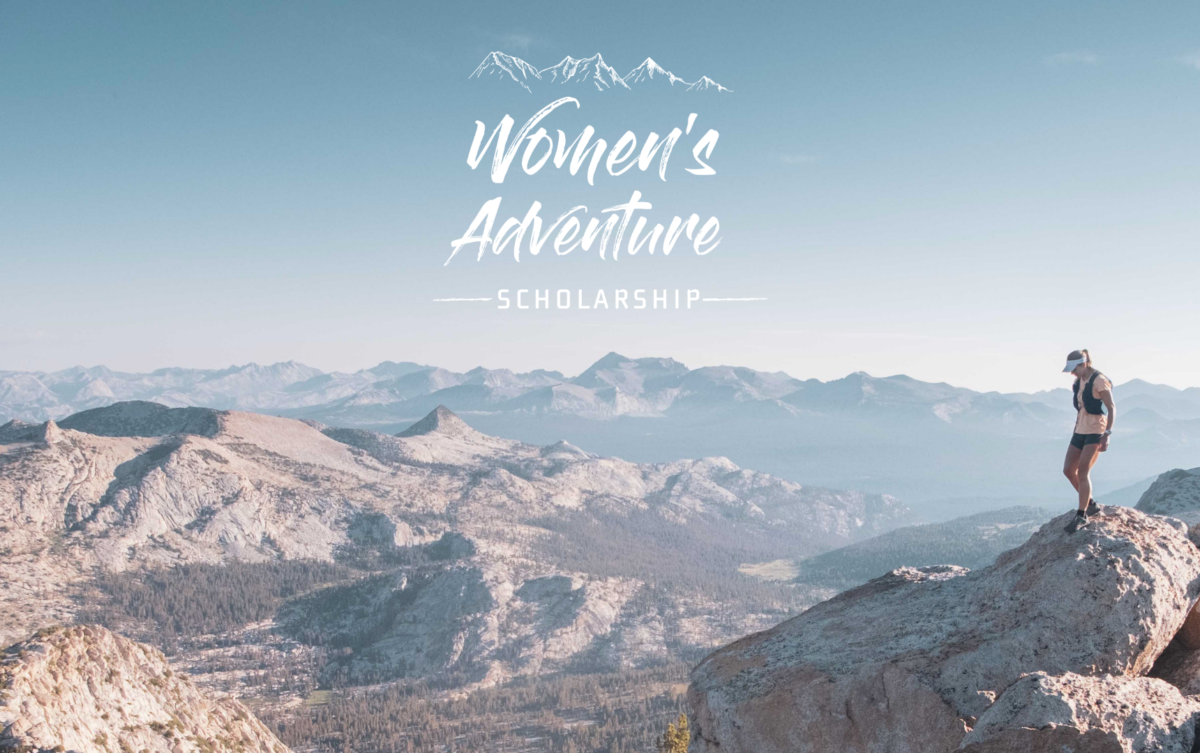The Aspire team is honored to share Maurya Lacey’s essay “Freedom Found” with you. We have been humbled, saddened, inspired, and so appreciative of the courage and clarity portrayed through these words.
“Freedom Found”
By Maurya Lacey, Trail Mixed: North Cascades Scholarship Recipient

I am a black female trail runner. Mic drop.
Ok, that’s not going to win me this amazing trip. But, in many ways that statement speaks to an autonomy, a strength, an overcoming of both personal and collective fears, a comfort with my own uniqueness, a peace with solitude and even loneliness that comes with moving in wild spaces as a black woman. There aren’t many of us. Social media has created a fledgling virtual community of black women trail runners. We follow each other from across the country, commenting on updates with the familiarity of old drinking buddies, giddy when we actually run intercept another one of ‘us’. Running, particularly trail running has given me the confidence to forge my own path, has altered the trajectory of my life really, but the greatest gift that it’s brought me is the ability to share this amazing, empowering act of running and moving in wild spaces with people that would otherwise miss out.
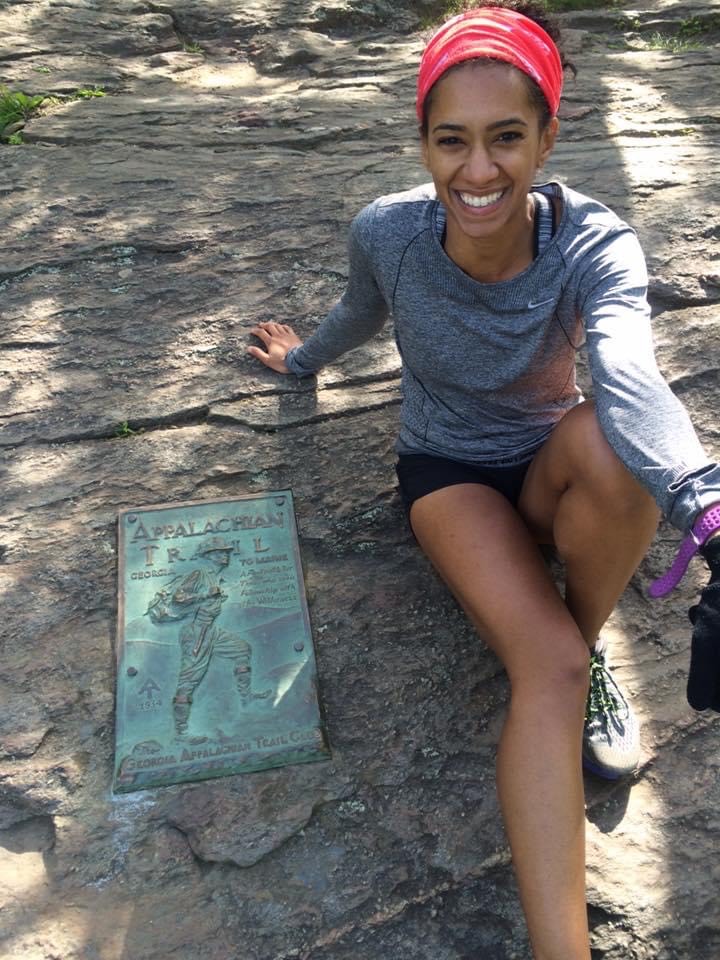
I fell in love with running in my late 20’s after making a bold goal to run my first race ever, a marathon. As someone who couldn’t run 2 consecutive miles it was probably a misguided goal, but I had found myself having checked many of the boxes of success set by society: had graduated from a good school, was engaged to be married, but I was running away from depression, weight gain, lack of direction, health issues and years of taking care of everyone else but myself.
I really had no model as I embarked on this new journey. I would later learn of Ted Corbitt and a few other great African-American distance runners, but certainly there is no significant acknowledged history of African-American runners in wild spaces. We know the story of the Athenian herald Pheidippides. We’ve read about the Tarahumara immortalized in Born to Run. We of course can see the Kalenjin people of Kenya that dominate long-distance road racing, but our knowledge and shared memory with wild spaces, is a tale of terror in the darkest hours in America. In our DNA is intergenerational trauma. The dread our ancestors carried as they moved through tall grass, fields and forests in the dark of night; wading in marsh waters to throw their scent from the slave catchers hounds. The real and present danger of being caught for no crime other than the color of your skin on a rural road in the American Apartheid known as the Jim Crow South is not far out of our consciousness. My grandmother witnessed the lynching of a young man who had thus moved out of bounds. That experience dictated her steps, and like the codified confines of separate-but-equal, there remained unwritten rules for generations for so many like her in this country. Her warnings to my mother are my mother’s and aunts’ warnings to me. Many of us have been able to convince ourselves that we avoid the trails, the woods, camping, etc. out of preference, but this trauma has shaped our present in ways that this country as a whole is just beginning to understand.
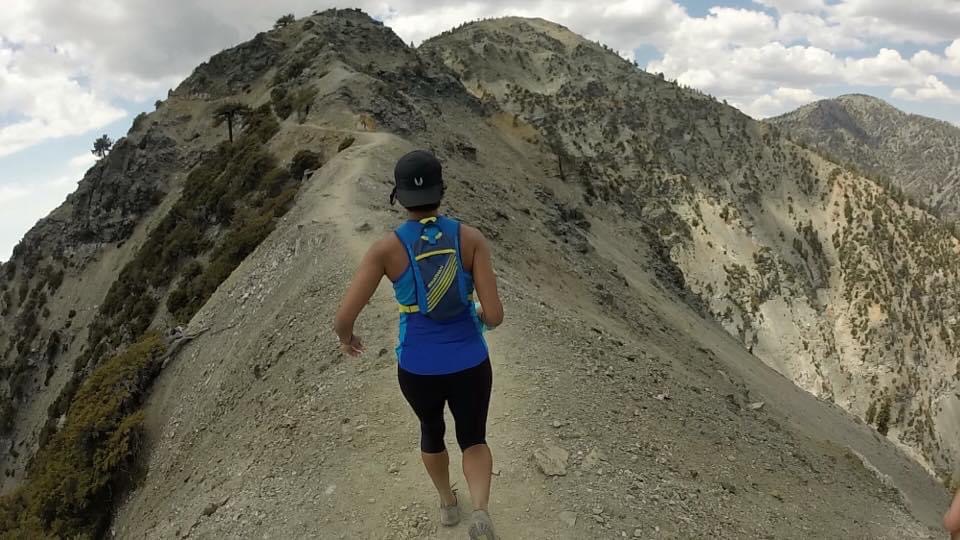
So, the fact that I fell in love with running on my first introduction to the trails is pretty remarkable. On a snowy long-run day in Cleveland where I lived at the time, I decided to run through the snow-covered grass on lawns and trails for my 15 miler. The wind gently lifted the snow off the trees creating an ethereal mist. The rhythmic crunch of each step seemed to be the only sound for miles at a time. I fell into that zone that we all seek, but that I had never experienced. The magic of the scenery, the feeling of freedom and a strength that had been locked away for so long were transformative. Over the years I’ve constantly been met with that magic, that awareness of my own strength, and for reasons that I can’t define, it only happens in nature. It was not long after that moment in the snow, that I decided to leave Ohio, my engagement and start a new life with this passion for running at the crux of everything.
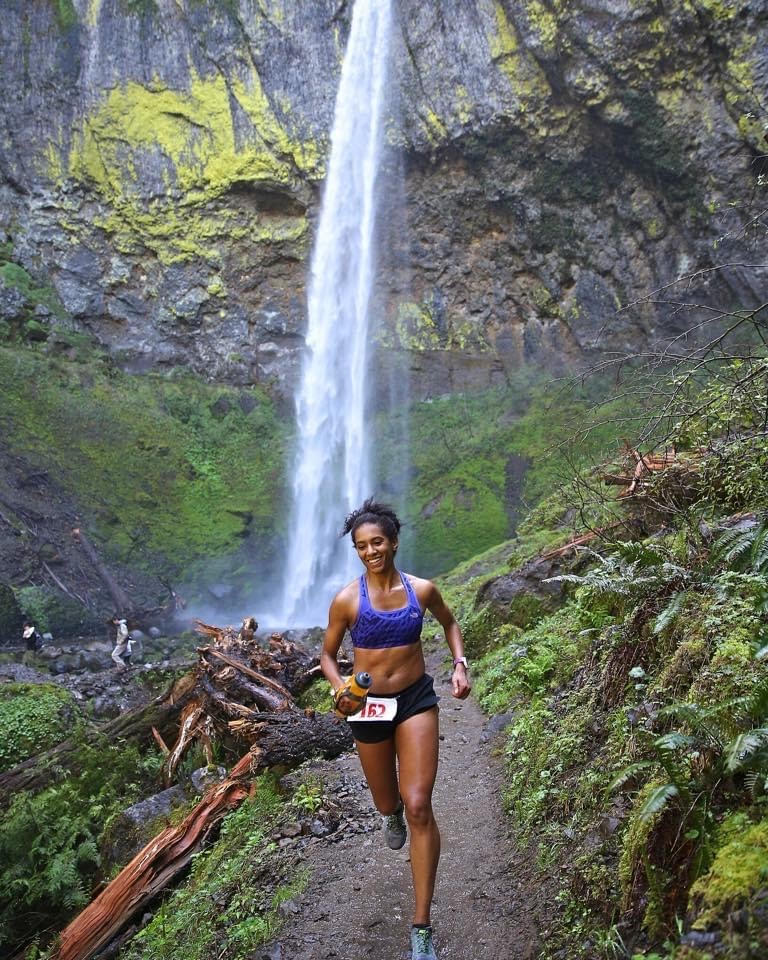
Many road races, trail runs and adventures later, I’d settled into this kinship with nature, this harmony within myself in the wild, but to my new group of predominantly Black running friends (and more than a few concerned family members), this enchanting world was a place of fear, unease and exclusion. So, I ran our local GA trails, the buttery ridgelines of Marin Headlands, the arid beauty of Utah, past lush forests and waterfalls in Oregon, up the exposed backbone of Mt. Baldy and over the root laden rolling hills of the Smokies alone.
Over the years, between work and relocations, adulting and a baby, I’ve managed to corral and convince some of my Black run buds to hit the trails in meetups I’ve called Urban Wanderers. This group is open to everyone, but was initiated with the very clear purpose of diversifying the outdoors. Forward movement has been slow and sporadic, but just like my own running journey, hard times have opened new doors. Covid-19 coupled with a national reckoning on race has driven us out of “quarantine”, unhealthy spaces, unhealthy mindsets and into the wild. After a furlough and job loss due to Covid-19, I again returned home to GA (baby and fiancé in tow) and have purposefully used the trails to regain my physical strength and inner peace. Again, I’ve been able to regain my voice in the community and am positioning our right, our need and our reclamation of wild spaces in ways that I
would have never thought I could.
Because in many ways, the urgency of the wild itself speaks to me and those who will listen. It tells us that we disconnect or disrespect these spaces at our own peril; that to be excluded or deny ourselves their beauty is shameful. Running in the wild has shown me that the reward of running wasn’t in any specific achievement or accolade. The magic was in the empowerment found in resisting and overcoming my circumstances. I’ve often been wary of attempting to be some sort of influencer, but there is a great importance to owning our narrative. I run to hopefully spread joy and opportunities to my peers and to pass down more courage and less fear to my daughter. All of ‘us’ who carry the joy and the “burden” of representation these days cannot begin to imagine the struggles of our ancestors whose lives’ have shaped our current reality, yet there is a kinship in our common search for joy and freedom. We now have the power to shape our lives and our stories.
Ironically, out of the horrors of slavery came perhaps the greatest trail running story in American history- that of Harriet Tubman, an epic female hero if there ever was one. She made a 90 mile trek to freedom only to return to slave country over thirteen times to save others. This ain’t new for us. Tens of thousands of preserved runaway ads, tell a story of terror but also of courage. Men and women running with little more than the clothes on their body. They carried cornmeal cakes wrapped in cloth for sustenance, their shoes were stiff boots, tattered cloth or none at all.
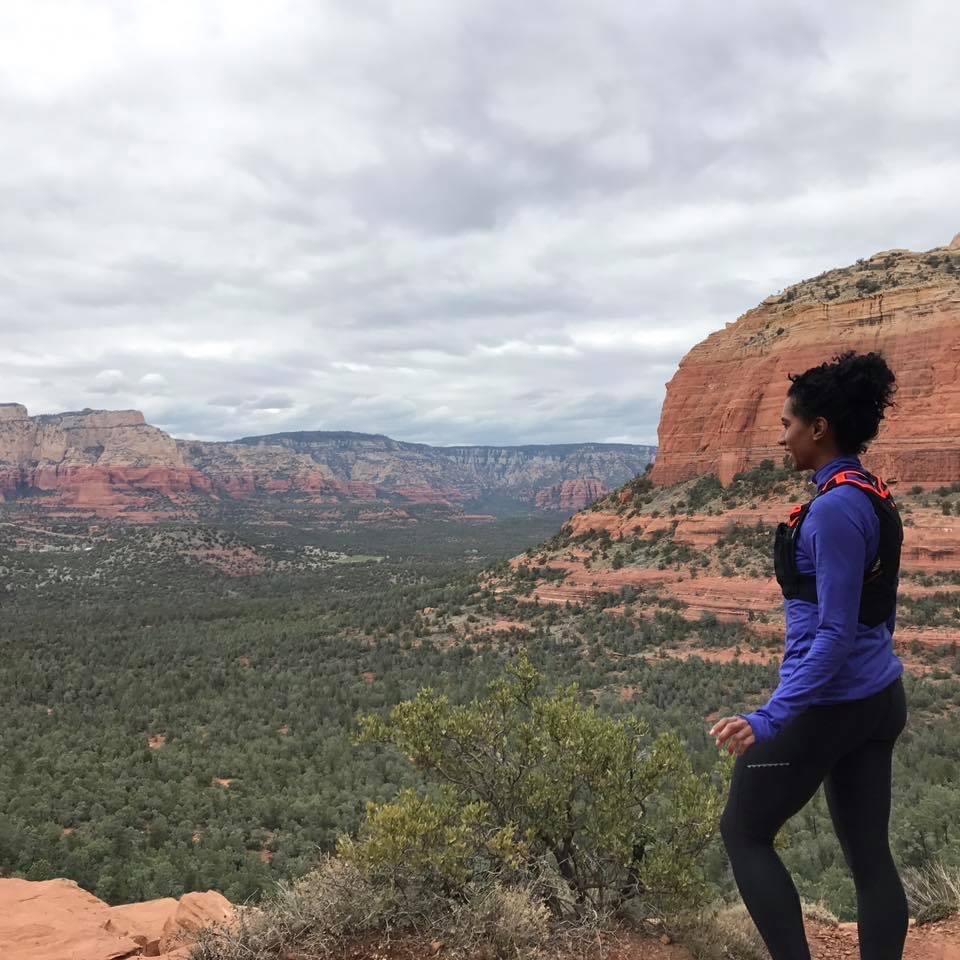
I run the same Georgia red clay that my people’s ancestors self liberated on. Sweat ran down their breasts, past round thighs and strong legs like mine and into the dirt. Their gaze carried past endless rows of cotton, and maybe there was some small joy they dreamed about, the way that I dream of mountains. Something that made them also feel alive, happy…human. I am blessed beyond their wildest dreams largely because of what running has given to me. Though there was and will always be a fear factor, Ours is a triumphant story of freedom in wild spaces that we must own and build upon. I’m grateful for the opportunity to share my story and bring others toward that freedom.
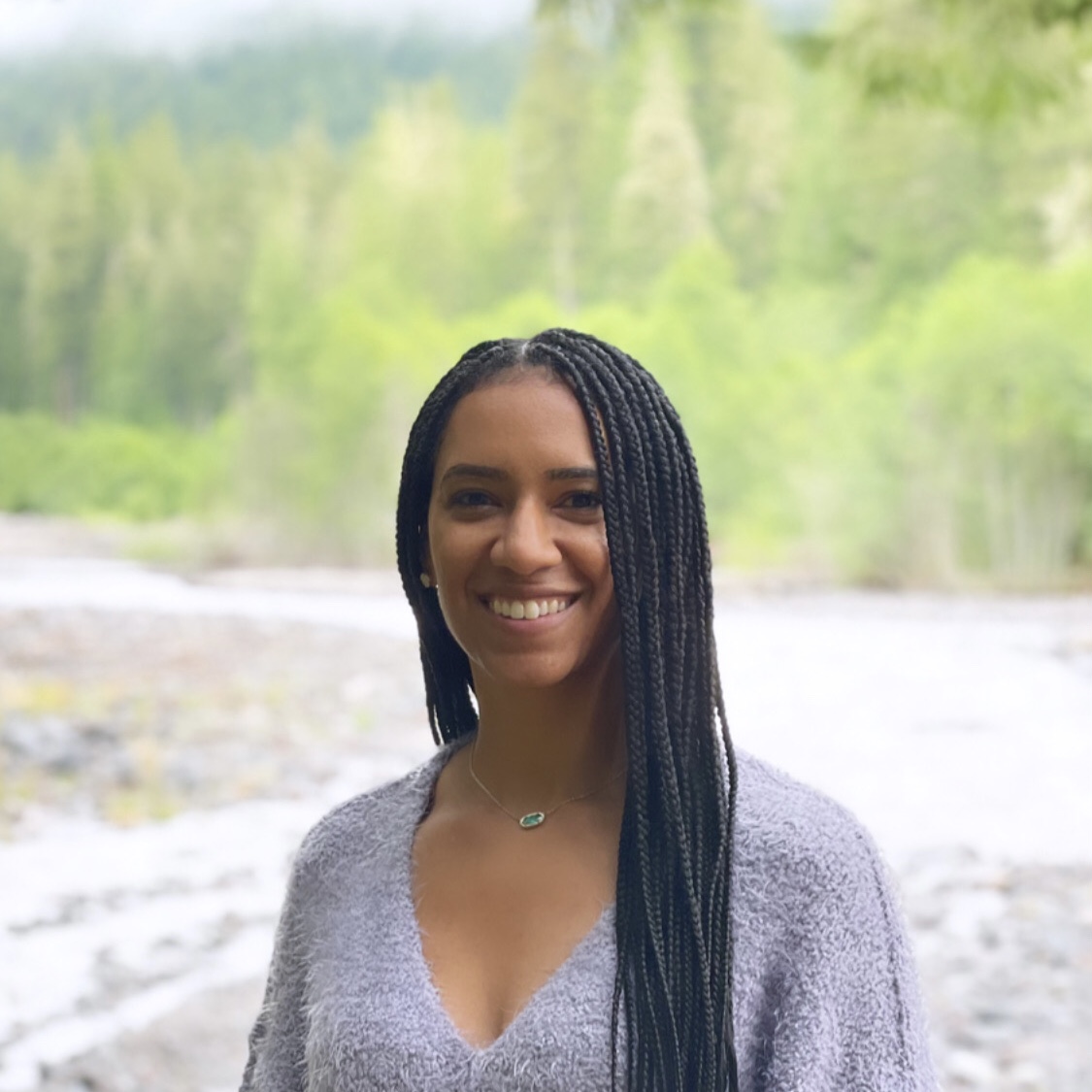
Maurya Lacey (she/her/hers) is a mom, reformed road runner, and nature frolicker who spends way more time than she should behind her laptop working in communications & marketing. Maurya leads an Atlanta, GA meet-up, Urban Wanderers, which is welcome to all but is intentional in creating inviting, fun and safe spaces for BIPOC runners to get out on the trails.

